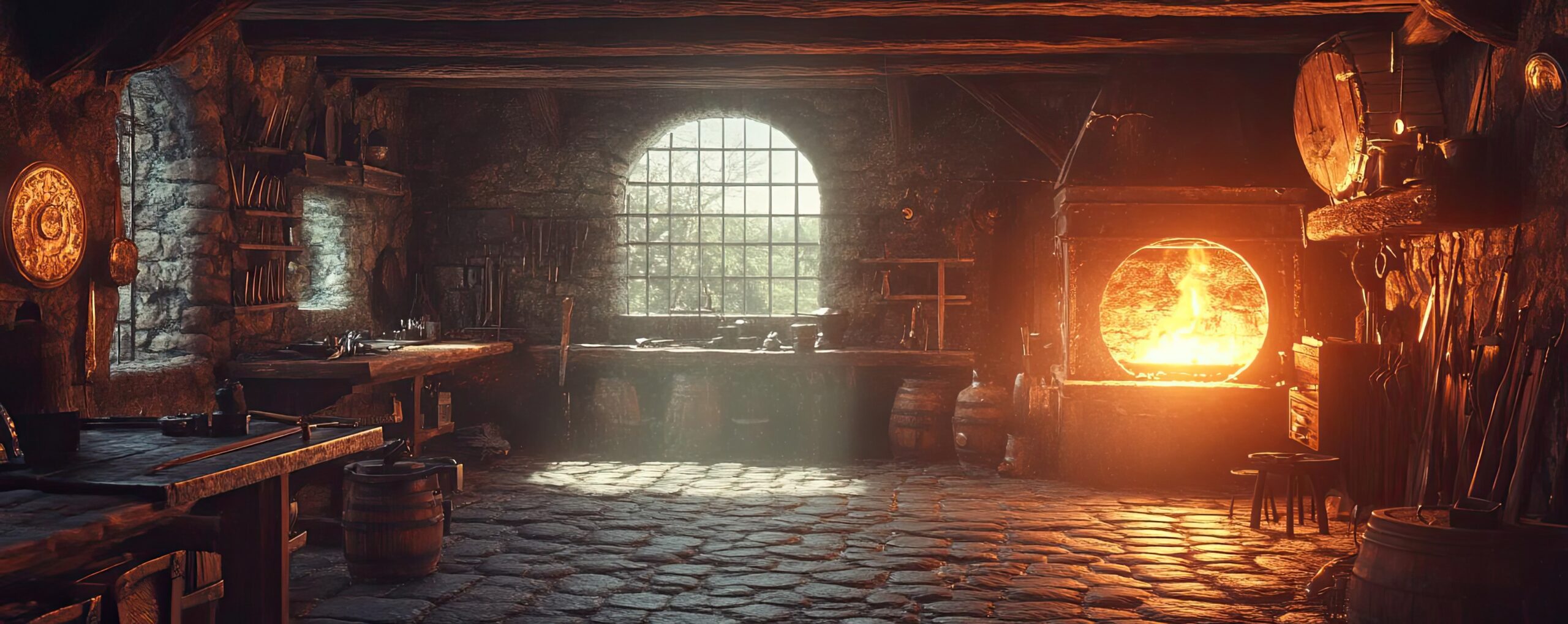In a small village at the edge of a great forest, there was a blacksmith named Elara, known far and wide for her skill in shaping the strongest, most beautiful tools and weapons. Her forge was a place of great importance, not only to her, but to the entire village, as it supplied the villagers with everything from farming tools to protective armor. People came from miles around to learn her craft, eager to become skilled blacksmiths themselves.
Elara was both respected and admired, but also known for her high standards. She demanded precision in every hammer strike, consistency in every piece of metal she shaped. Her apprentices were expected to meet these standards or face the consequences. A poorly forged sword, for example, could break in battle and endanger lives; a crooked plow could ruin a season’s harvest. Elara’s reputation was built on her unwavering commitment to quality.
One autumn day, a young apprentice named Finn came to her forge. He was eager, full of energy, but lacking in experience. Elara assigned him the task of forging a set of horseshoes for the village’s stable. It was an important job—too important to be done carelessly.
Finn threw himself into the task, but as the days wore on, he began to struggle. The horseshoes he made were uneven, with some edges too sharp, others too dull. The metal wasn’t as smooth as it should have been, and the horseshoes didn’t fit the horses properly. Finn became frustrated. He worked longer hours, his hands blistering and tired, but the results still weren’t right.
One afternoon, Elara walked into the forge, watching Finn struggle at the anvil. The hammer fell with a harsh clang as Finn sighed in frustration.
“Finn, why do you look so defeated?” she asked, her voice calm but firm.
Finn wiped the sweat from his brow. “I’m trying, but I can’t get it right. No matter what I do, the horseshoes just don’t come out the way they’re supposed to.”
Elara nodded and walked over to him. She could see his exhaustion, his frustration, but she also knew this was a critical moment for his growth. She didn’t lower the expectation; the horseshoes had to be perfect. But she also knew he needed help to meet that standard.
“Elara,” Finn said, his voice shaky, “I’m just not good enough. Maybe I’m not cut out for this work.”
Elara knelt beside him, placing a hand gently on his shoulder. “Finn, it’s not about being good enough; it’s about learning. No one starts as a master. What you’re feeling is part of the process. But you have to keep going. I’ve set the bar high for a reason—because I know you have it in you. But this work requires more than just skill. It requires patience with yourself.”
She didn’t back off the standard. Instead, she guided him through every step. She showed him how to hold the hammer with a steadier hand, how to listen to the rhythm of the forge, and how to read the metal’s subtle changes. Every time Finn faltered, she encouraged him, helping him get back to his feet without letting him off the hook. She held him accountable to the task at hand, but she also took time to ensure he was learning, not just doing.
Days turned into weeks, and slowly, Finn began to improve. His horseshoes became more and more precise, each one crafted with greater care and skill. By the time he finished the last one, they fit the horses just right—strong, sturdy, and smooth. Elara stood beside him, nodding in approval.
“You’ve done well, Finn,” she said. “But remember this: it wasn’t the perfect horseshoes that made you better. It was your willingness to learn, your resilience in the face of failure, and your commitment to the work. That’s the standard.”
As the seasons passed, Finn grew into a master blacksmith in his own right. He never forgot Elara’s lesson—that high standards and compassion can coexist, and that leadership is about pushing others to rise, while showing them that they can.
Lessons from the Forge
- Maintain High Standards: Elara didn’t compromise on the quality of the work. Great leaders set high expectations because they believe in the potential of those they lead.
- Accountability and Support: Holding others accountable doesn’t mean abandoning them when they struggle. Elara was clear about the standard, but she was there to guide Finn through the process of reaching it.
- Growth Requires Patience: Skills take time to develop. Leaders must understand that growth comes through persistence and learning, not perfection from the start.
- Empathy in Leadership: Elara understood Finn’s frustration and met him with empathy but never lowered the bar. She knew that to help him grow, she had to push him, but in a way that showed he wasn’t alone.
- The Power of Resilience: Leaders help others build resilience by encouraging them to keep going through setbacks. The road to mastery isn’t smooth, but with the right guidance, people can find their way.
The Moral of the Story
Leadership isn’t about being perfect—it’s about helping others reach their potential through both accountability and care.
February 3, 2025

View comments
+ Leave a comment